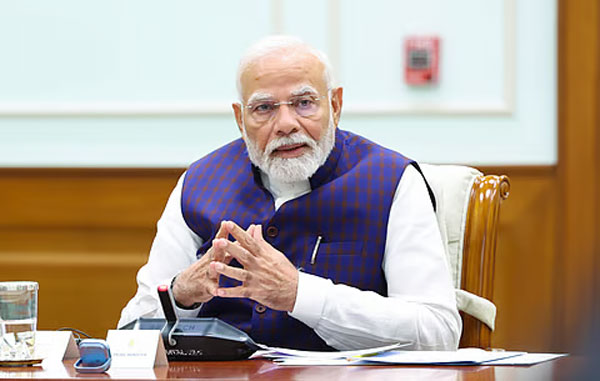Daijiworld Media Network - New Delhi
New Delhi, Oct 8: Prime Minister Narendra Modi has hailed India’s achievements in wildlife conservation over the past decade, describing them as a model for the world to follow. Marking the conclusion of Wildlife Week 2025, the Prime Minister praised the progress made in both protecting endangered species and restoring their natural habitats.
Taking to social media platform X, PM Modi shared a detailed article authored by Union Environment Minister Bhupender Yadav. The article highlights a wide array of government-led initiatives aimed at conserving species on the brink of extinction, reaffirming India’s commitment to environmental sustainability.

In his post, PM Modi wrote: “He highlights initiatives such as the Amrit Kaal Ka Tiger Vision (Tiger@2047), Project Snow Leopard, Project Cheetah, and Project Dolphin, which provide hope and optimism for wildlife conservation.”
These ambitious projects are part of a broader vision to safeguard India’s biodiversity for future generations.
Minister Yadav, in his article, emphasized the country’s impressive strides in reviving iconic species. He pointed out that India is the first nation to compile a comprehensive checklist of its 102,718 fauna species across 10 biogeographic zones—an unprecedented effort in biodiversity documentation.
He also noted a significant rise in the tiger population: “The number of tigers has increased by over 30 per cent in the last ten years. With 3,682 tigers, India now hosts 70 per cent of the world’s total tiger population.”
The Wildlife Week 2025 celebrations were jointly organized by the Ministry of Environment, Forest and Climate Change, along with premier institutions such as the Wildlife Institute of India (WII), Indian Council of Forestry Research and Education (ICFRE), Indira Gandhi National Forest Academy (IGNFA), and Forest Research Institute (FRI).
During the closing ceremony, Environment Minister Yadav underscored the importance of collaboration in conservation efforts. He urged all stakeholders to join forces, stating, “Wildlife protection is not just a duty, but a shared responsibility. It is essential for maintaining harmony between nature and people.”
With its success in protecting diverse species and ecosystems, India’s conservation journey is now being positioned as a potential global template for environmental stewardship.